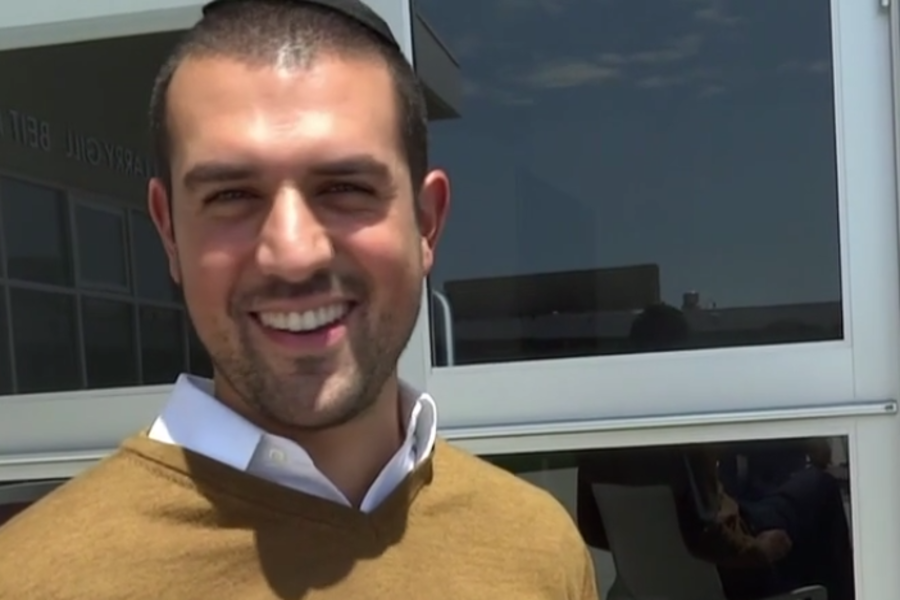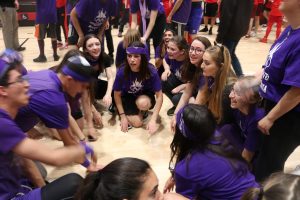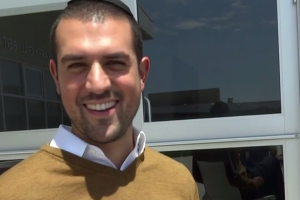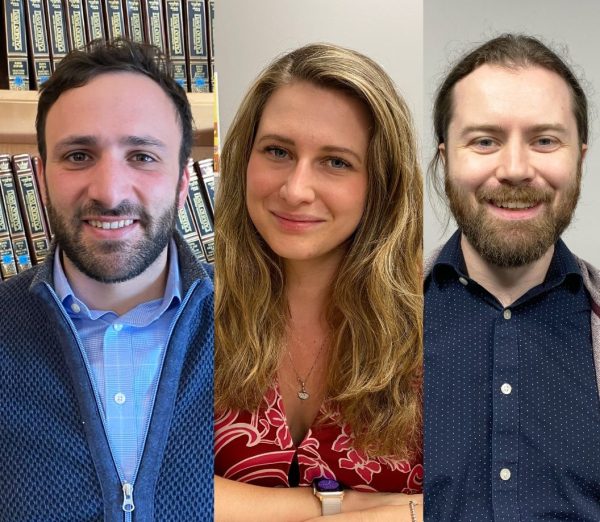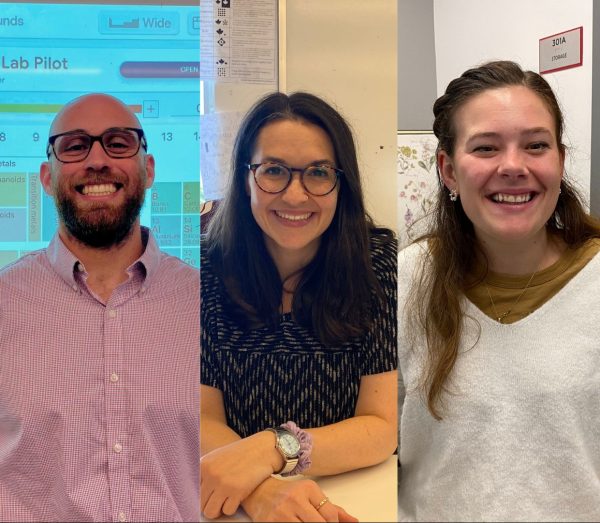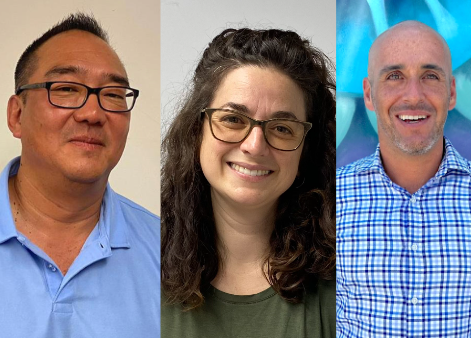Books, visits help recovery as Rabbi Tsaidi plans return next fall
RECOVERING: Rabbi Yagil Tsaidi has been reading Jewish and Psychology texts. His students say they miss his guidance and shiurim.
[edsanimate_start entry_animation_type= “fadeIn” entry_delay= “0” entry_duration= “1.0” entry_timing= “ease-in” exit_animation_type= “” exit_delay= “” exit_duration= “” exit_timing= “” animation_repeat= “1” keep= “yes” animate_on= “scroll” scroll_offset= “2” custom_css_class= “”]
Judaic Studies teacher and mashgiach ruchani Rabbi Yagil Tsaidi remains out on medical leave since Feb. 21, but he has not stopped learning, spending time with students or working toward making a comeback.
“I am getting a lot better — every day is a little bit better,” Rabbi Tsaidi said. He has been seeing a specialist for his back pain every other day, and student visits and learning have been helping him with the emotional toll of staying home.
Rabbi Tsaidi injured his back Feb. 21 by engaging with the student body as a “hippo” in a game of Hungry Hungry Hippos during Color War. Strapped at floor-level to a board with four wheels and wearing a helmet, he was pushed out into a pit of balloons holding a basket he was supposed to use to collect balloons for points.
Suddenly, he cried out in pain, the contest stopped, 911 was called, and Rabbi Tsaidi headed for the Emergency Room at Cedars-Sinai Medical Center. Unbeknownst to most students, he had a history of back trouble.
He returned to school a few days later, but was still in pain and — apparently against his wishes — told to go home on Apr. 17 and recuperate for the rest of the year.
Since then, Rabbi Tsaidi has undergone “a few minor procedures,” he said, along with lots of physical therapy and rehab. But he said he had suffered most from missing out on major Shalhevet events.
Low points, he said, were the day the seniors left for their Poland Israel Experience, which Rabbi Tsaidi was supposed to chaperone, and the class of 2018’s graduation. He was also sad to miss the celebration at school for Yom Ha’atzmaut.
“And that was worse than the pain in the ER,” he said from his home during a phone interview.
To heal, he has been reading the mussar classic Alei Shur, a machshava (thoughtful philosophy) sefer about personal growth. The sefer holds Harav Shlomo Wolbe’s commentary on the appropriate way of life for a yeshiva student.
“It’s a reminder of humility in your process and not to get too ahead of yourself,” Rabbi Tsaidi said in an interview June 4. “There are important things to prioritize, one of them being Hakadosh Baruch Hu, and to prioritize things in the day — not in the week or the month, but just in a day. It helps me make my days productive.”
He has also been prioritizing his family, comprised of his wife and seven-month-old son, who he takes a walk with everyday as a part of his physical therapy.
Another book, The Divided Mind by Dr. John E. Sarno, about the relevance of the mind in chronic pain, has also been helping Rabbi Tsaidi through the process of medical leave and back pain. He said he learned that there are things in one’s life, that if fixed, can help speed up recovery.
It’s hard to tell who misses what more: Rabbi Tsaidi and Shalhevet, or his students and him. It seems his role as mashgiach ruchani — spiritual supervisor — involved him in the daily life of almost everyone at school.
Senior Jacob Perelman says he misses their Tanya shiur, which Rabbi Tsaidi led every Tuesday and Thursday at lunch. He and other seniors were saddened to learn Rabbi Tsaidi would not join them on Poland-Israel.
“I wish he was there,” Jacob said. “He and I have a very close connection. He’s really my rebbe — it felt like something was missing.”
Seniors Ilan Bouskila and Ben Mashiach have visited Rabbi Tsaidi at his home, where they learned, hung out and sang. A group also went to visit him before leaving for Poland.
Rabbi Tsaidi said that although staying home has been tough, it has given him a “great perspective” on what he is really a part of at Shalhevet. He said a lot of his friends who are lawyers and accountants were telling him how great it is that he is getting such a long medical leave, with insurance, and that he should be enjoying it.
“I’m like, ‘No, it’s been awful,’” he says. “All the teachers at Shalhevet are not trying to get to five p.m. I realize I have the luxury of loving what I do, and being a rabbi makes 24 hours of my day really fulfilling.”
In other years Rabbi Tsaidi has run Camp Ariel during the summer, but this year he will not. Instead, he is coming back to Shalhevet part-time to prepare for the 2018-19 school year, during which he expects to be back to fulltime. He will not be making any moderations to his job.
“Aderaba,” he said, using a Hebrew term which means, “On the contrary, even more.” That is, he will actually be having a bigger role in the school and more to do — “as I would expect and want,” he added.
“I really can’t wait to get back,” he said, “get back to being a mashgiach ruchani and being with the kids.”
[edsanimate_end]
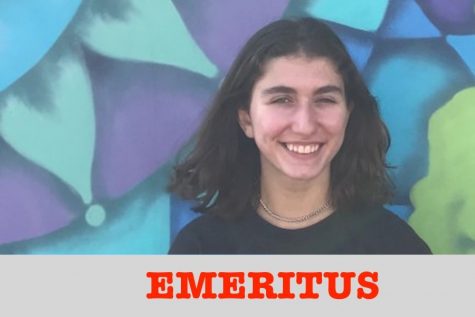
Hannah Jannol was Editor-in-Chief of the Boiling Point during the 2017-2018 school year. Since then, she has attended The New School and written for their HerCampus chapter; edited obituaries for The Trace; written poetry for Eleven and a Half literary magazine, and run Instagram and Twitter for Uptown Stories. Her favorite parts of being on Boiling Point were production night and writing long-form features stories, many of which won awards from CSPA, Quill & Scroll and the American Jewish Press Association.

